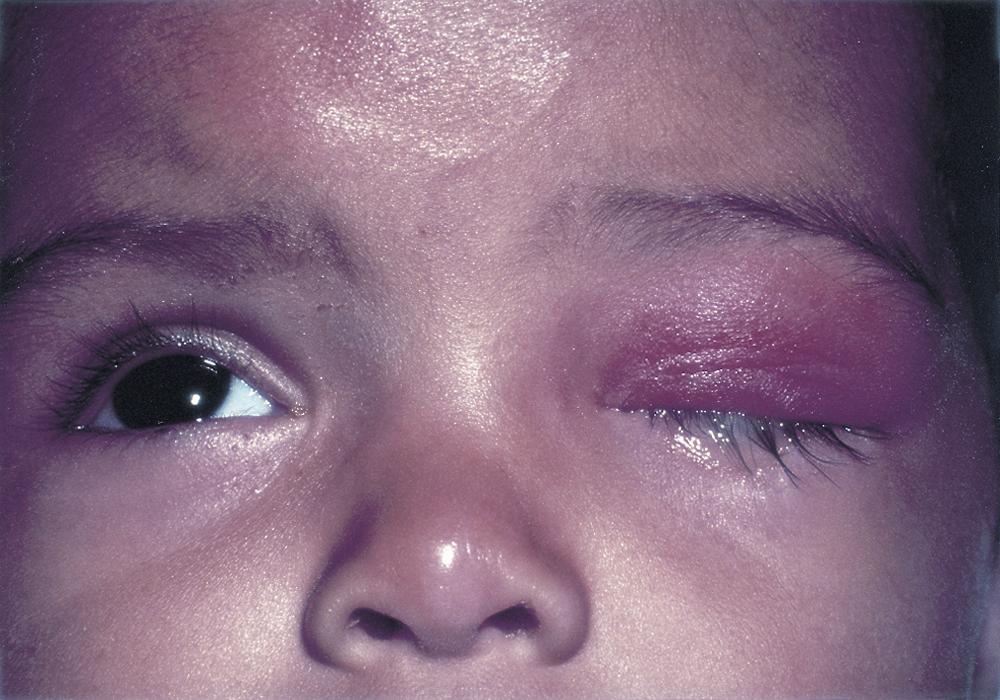Ophthalmia neonatorum is an eye infection that affects newborns. It can cause significant damage to the eyes if left untreated, including blindness. The condition is caused by bacteria or viruses that are transmitted from the mother to the baby during delivery. In this article, we will discuss the causes, symptoms, and treatment of ophthalmia neonatorum.
The primary cause of ophthalmia neonatorum is the transmission of bacteria or viruses from the mother to the baby during childbirth. The most common pathogens that cause ophthalmia neonatorum are Neisseria gonorrhoeae and Chlamydia trachomatis. These bacteria can infect the baby’s eyes during delivery when they pass through the birth canal. Other pathogens that can cause ophthalmia neonatorum include Streptococcus pneumoniae, Haemophilus influenzae, and herpes simplex virus.
The symptoms of ophthalmia neonatorum usually appear within the first few days after birth. The most common symptoms include redness and swelling of the eyelids, discharge from the eyes, and sensitivity to light. The baby may also experience excessive tearing, and the eyes may be stuck together after sleep.
If left untreated, ophthalmia neonatorum can lead to significant eye damage and even blindness. The infection can spread to other parts of the eye, such as the cornea, and cause scarring or ulcers. In severe cases, the infection can spread to the brain and cause meningitis.
The diagnosis of ophthalmia neonatorum is typically made based on the signs and symptoms observed in the newborn’s eyes. A doctor or healthcare provider will usually perform a thorough physical examination of the baby’s eyes to look for any signs of infection, including redness, swelling, and discharge.
In addition to the physical examination, a doctor may also perform certain tests to confirm the diagnosis and determine the underlying cause of the infection. These tests may include:
Gram stain: This test involves taking a swab of the discharge from the baby’s eyes and examining it under a microscope. The gram stain can help identify the type of bacteria causing the infection.
Culture: A sample of the discharge may be sent to a laboratory for culture, which involves growing the bacteria in a petri dish. This test can help identify the specific bacteria causing the infection and determine which antibiotics will be most effective in treating it.
Polymerase chain reaction (PCR): This test can detect the presence of viral DNA in a sample of the discharge from the baby’s eyes. PCR is particularly useful in identifying the herpes simplex virus, which can cause severe eye infections in newborns.
Blood tests: If the doctor suspects that the infection has spread beyond the eyes, blood tests may be ordered to look for signs of systemic infection or inflammation.
It is important to diagnose ophthalmia neonatorum as early as possible to prevent complications and preserve the baby’s vision. Treatment should be started promptly based on the underlying cause of the infection.
The treatment for ophthalmia neonatorum depends on the underlying cause of the infection. If the infection is caused by bacteria, the baby will be given antibiotics. If the infection is caused by a virus, antiviral medications may be prescribed. The baby’s eyes will also be cleaned with saline solution to remove any discharge.
The best way to prevent ophthalmia neonatorum is to ensure that the mother is screened and treated for any infections before delivery. If the mother has an infection, she should be treated with antibiotics or antiviral medications before delivery to reduce the risk of transmission to the baby. In addition, all newborns are routinely treated with antibiotic eye drops or ointment after birth to prevent ophthalmia neonatorum.
In conclusion, ophthalmia neonatorum is a serious eye infection that can cause significant eye damage and even blindness in newborns. It is caused by bacteria or viruses that are transmitted from the mother to the baby during delivery. The infection can be prevented by screening and treating the mother before delivery and by treating newborns with antibiotic eye drops or ointment after birth. If ophthalmia neonatorum is suspected, prompt treatment is essential to prevent complications and preserve the baby’s vision.
At The Eye Center- Dr. Mahnaz Naveed Shah & Associates our team of eight ophthalmology subspecialists/ eye specialists, eye surgeons who are considered amongst the very best eye specialists in Karachi and in Pakistan, have the diagnostic and treatment capabilities to treat from the simplest to the most complex patients. We work hard to provide our patients with the best possible medical and surgical eye care, in a state of the art purpose built eye care facility. We offer the entire array of medical, laser and surgical treatments to help provide patients the best possible care in the most efficient, safe and ethical manner.
If you need an appointment, please contact us at 03041119544 during our working hours or leave us a WhatsApp message at +923028291799 and someone will connect with you. Walk-in appointments are also available for emergencies. We can also be reached through our web portal on www.surgicaleyecenter.org

